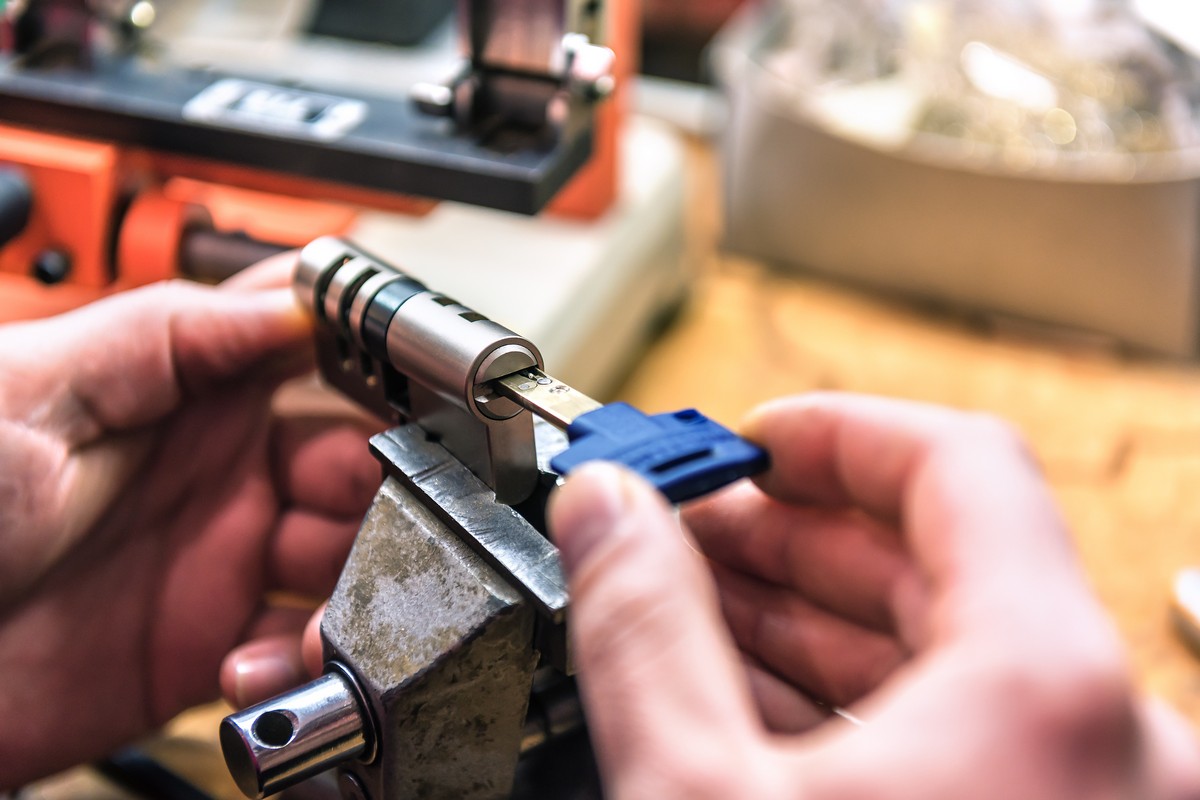 How to Choose the Right Lock for Your Home
How to Choose the Right Lock for Your Home

Choosing the right lock for your home is a crucial decision for ensuring the security of your property and loved ones. With various lock types available, it’s essential to select one that fits your specific security needs, budget, and the level of protection you want. Here’s a guide to help you choose the right lock for your home, with expert locksmith advice on what to consider.
Understand the Types of Locks
Different types of locks offer varying levels of security, convenience, and durability. Knowing the most common options will help you determine which lock best suits your home.
Popular Lock Types:
- Deadbolts: Deadbolts are one of the most secure types of locks, commonly used on exterior doors. They feature a steel bolt that extends into the door frame, making forced entry difficult. Deadbolts are available in single-cylinder (keyed on the outside, turn knob on the inside) or double-cylinder (keyed on both sides) options.
- Knob Locks: Often used in conjunction with deadbolts, knob locks are the standard locks found on doorknobs. While convenient, they’re not as secure as deadbolts, as the lock mechanism is in the knob itself, which can be easily broken or bypassed.
- Smart Locks: These keyless entry systems allow you to control access to your home using a smartphone app, keypad, or biometric identification (fingerprint). Smart locks offer convenience and the ability to lock or unlock your door remotely, but they depend on technology and battery power.
- Mortise Locks: Mortise locks are durable, high-security locks often found in commercial buildings but also suitable for homes. They are installed into the door, making them more secure than surface-mounted locks.
- High-Security Locks: These locks come with additional security features such as anti-pick pins, bump-proof mechanisms, and reinforced cylinders to provide maximum protection against forced entry.
Consider Your Home’s Security Needs
The level of security you need will vary based on factors like your location, the value of your possessions, and whether you’ve had previous security issues. Assessing your home’s security needs will help determine which lock offers the right level of protection.
Factors to Consider:
- Location: If you live in an area with higher crime rates or are in a secluded location, investing in a high-security lock such as a deadbolt or smart lock with advanced features may be essential.
- Property Size: Larger homes with multiple entry points may require a mix of locks, including deadbolts for exterior doors and mortise locks or smart locks for added convenience on secondary doors.
- Previous Break-Ins: If you’ve experienced a break-in or are concerned about security, upgrading to a lock with anti-pick and bump-resistant features is recommended.
Match the Lock to Your Door Type
Not all locks are suitable for every type of door. The material, thickness, and purpose of the door (interior vs. exterior) will influence the type of lock that works best.
Door-Specific Recommendations:
- Exterior Doors: For front and back doors, deadbolts paired with knob locks or lever handles provide maximum security. If you want a more advanced solution, consider smart locks for keyless entry.
- Interior Doors: Bedrooms, bathrooms, and home offices typically use simpler locks such as knob or lever locks. However, if security is a concern in specific rooms (like a home office or closet), a high-security interior lock may be a good choice.
- Sliding Glass Doors: Sliding doors can be vulnerable to break-ins. A specialized sliding door lock or an additional security bar can enhance protection.
Consider Lock Grade and Durability
Locks are graded based on their security and durability by organizations like the American National Standards Institute (ANSI). Understanding these grades will help you choose a lock that offers the protection and lifespan you need.
Lock Grades:
- Grade 1: The highest level of security, typically used in commercial buildings but also suitable for residential doors that require maximum protection. These locks can withstand a significant amount of force and are highly resistant to picking or tampering.
- Grade 2: Provides a good balance of security and affordability, commonly found in residential settings. These locks are strong enough for most homes and are a popular choice for exterior doors.
- Grade 3: The minimum standard for residential locks, suitable for interior doors or low-risk areas. While these locks offer basic security, they’re not ideal for protecting exterior entry points.
Evaluate Convenience Features
Beyond security, the convenience of your lock is an important factor. Modern locks offer features designed to make access easier while still maintaining security.
Convenience Features to Look For:
- Keyless Entry: Smart locks and keyless deadbolts allow you to unlock your door without a traditional key, which can be helpful for family members, guests, or service providers. Many also offer temporary access codes.
- Remote Access: Some smart locks allow you to lock and unlock your door remotely via a smartphone app, making it easier to manage access while you’re away.
- Auto-Locking: Locks with automatic locking features will secure the door after a set period of time, ensuring your home is always protected, even if you forget to lock up.
When to Call a Locksmith
If you’re unsure which lock is right for your home or need help with installation, calling a professional locksmith is the best course of action. A locksmith can evaluate your security needs, recommend the right locks, and ensure they’re properly installed to provide maximum protection.
By considering the type of lock, your security needs, door specifics, and additional features, you can choose the best lock to safeguard your home. Whether you prioritize maximum security, modern convenience, or a balance of both, the right lock will provide peace of mind and protect your property effectively.

